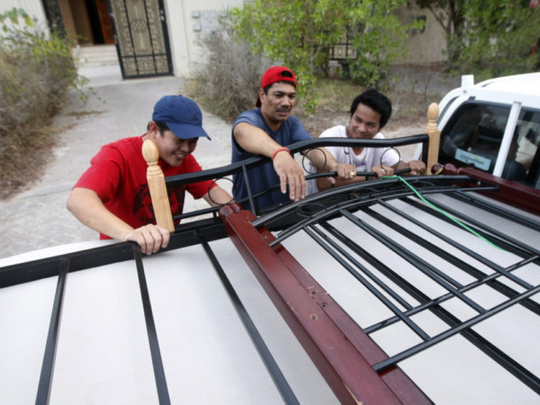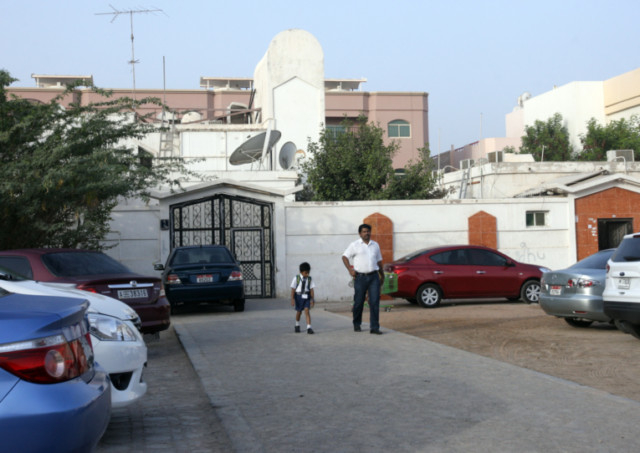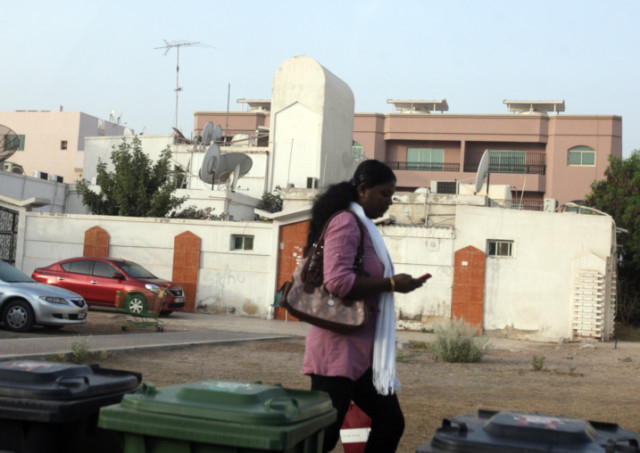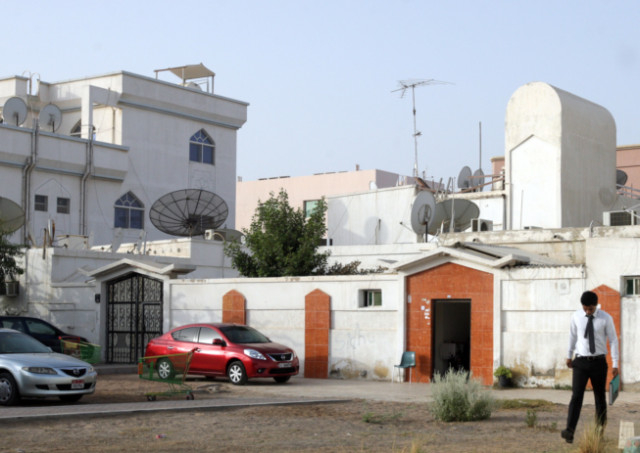
Abu Dhabi: Hundreds of residents may lose the roof over their head and their rental deposit as the authorities crackdown on families sharing villas in Abu Dhabi.
“I had just renewed my contract with four cheques worth Dh38,000,” said Indian Narayanan Pillai, who lives in a partitioned villa in Mohammad Bin Zayed City.
Pillai has to vacate the place in the next few days.
“The municipality officials gave gave us 30 days to move out. That was several days back. I don’t know where I will go and what will happen to my advance rent,” he said.
A similar predicament faces scores of other families living in the four villas within the same compound.
Around 20 tenants have already moved out but others remain defiant as some of them have paid almost an year’s rent up front to their agent.
Ajay Jacob, another tenant, said his agent has refused to return his rent cheques. “He convinced us that he could get special permits that will allow us to continue living in the villas. But when the inspectors came for a second visit, he packed us off along with our furniture and stuff. It was much later that we came to know that the villas were emptied to hoodwink the inspectors. We are in a terrible situation and have no choice but to move out.”
Affordable options
Dozens of villas have been rented out to expat families in Mohammad Bin Zayed City and Khalifa City.
Similar shared accommodations are readily available in other parts of the city too. A newly-built residential unit in Mushriff is a typical example. Here around 18 families live in a single villa with 40 makeshift one-bedroom and studio apartments. The two-storey structure has a main gate leading to a courtyard with apartment blocks on either side. Each block houses four apartments on the ground and first floors. There are separate entrances for families. The partioned units are numbered from one to 40 and their annual rent ranges from Dh35,000 to Dh50,000.
Most of these illegal facilities are inhabitated by middle income families who would have to otherwise cough up between Dh65,000 and Dh80,000 for a one-bedroom apartment.
In Mushriff even dilapidated shanties have been partitioned into several units and rented out for Dh2,500 to Dh3,000 per month.
Moidheen K.K., an Indian, who lives in one such unit said people like him who make around Dh12,000 cannot be choosers in an expensive city like Abu Dhabi.
“Unlike Dubai, there are not many affordable living options here. ‘The One villa, One family’ is not a viable option in a city like Abu Dhabi where rents are sky high. If they make it illegal to share villas or apartments, we will be left with no choice but to send back our families,” he said.
Municipality officials said they are cracking the whip on illegal accommodation as they pose a safety threat to residents.
Following the launch of the Tawtheeq project by Abu Dhabi Municipality in March 2011, it has become mandatory for residents to get their tenancy contracts attested by the Municipality. The project aims to register all leasable properties and lease contracts in the capital in order to compile and organise a database of Abu Dhabi real estate units.
Informal agreements
But what many residents who live in shared villas get is an informal agreement signed between the landlord and tenant issued by the landlord himself. “When I showed my tenancy contract to the municipality inspector, he said it is invalid. My owner had convinced me otherwise,” said Mohammad Iqbal, a villa tenant who received an eviction notice last week.
However, municipality officials maintain that illegal structures and over-crowded villas cannot be permitted.
Ali Al Hashemi, Tawtheeq, project manager at Abu Dhabi Municipality, said they are not against landlords leasing out to multiple tenants.
“If a villa is fit for one family and the landlord submits 16 tenancy contracts, it is not acceptable because there is a safety issue involved. Any modifications to the building structure to accommodate more families should be approved by the municipality. Our main aim is to stop illegal structures,” said Al Hashemi.
High rents
Currently, rents in the capital are nowhere near their 2008 peak, but a decent apartment is still beyond the reach of many.
In the posh Al Reem Island, for instance, the average rent of a studio is Dh90,000. One and two-bedroom units cost Dh100,000 and Dh120,000 and a three bedroom apartment can go up to Dh160,000.
In Muroor, which is largely dominated by low-income families, rents for one-bedroom apartments range from Dh60,000 to Dh90,000, according to property adviser Tasweek.
By the end of next year 238,000 new units will be handed to owners.
But that is unlikely to cheer middle class families as the new units will mostly to high-income groups.
As long as rents remain high, residents say they will have no choice but to share accommodation.
“There are people who are moving from one shared apartment to another, be it in Khalifa City or Muroor. But at the end of the day, what they get is partitioned living spaces.
“So what is the logic behind illegalising shared villas?” asked a harried tenant.
You Speak
How can Abu Dhabi overcome its housing crisis?
Have you been ripped off by a property agent? Tell us about your experience
Write to us at:
news@xpress4me.com
sms 5101














